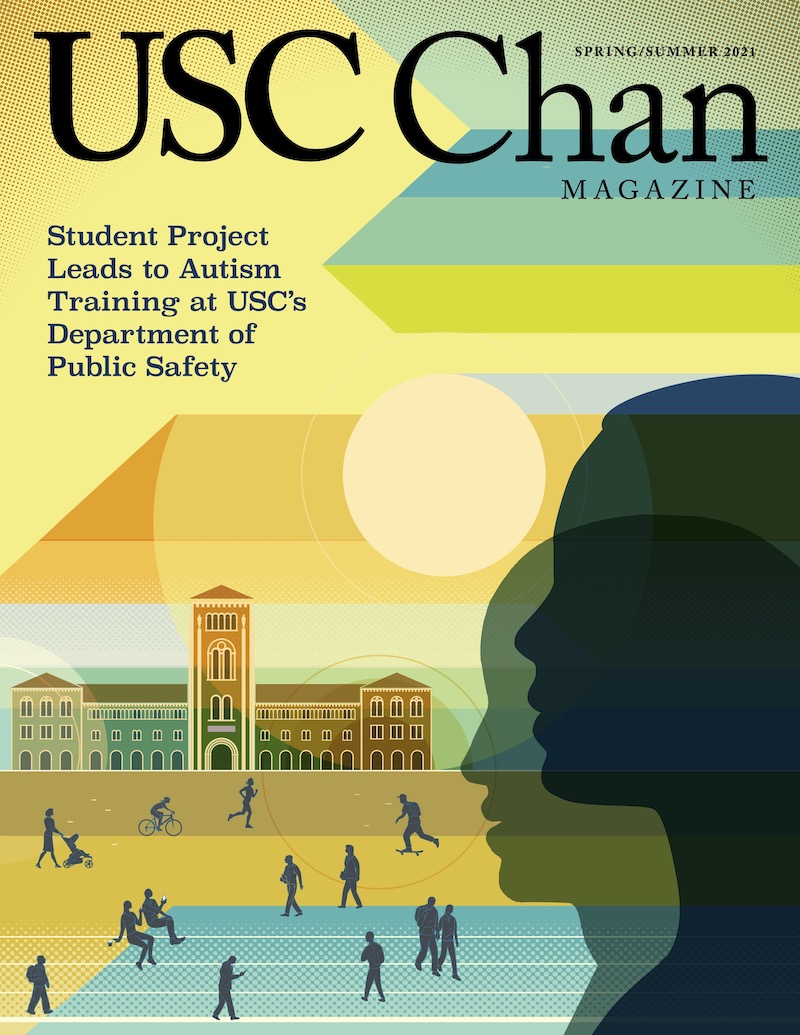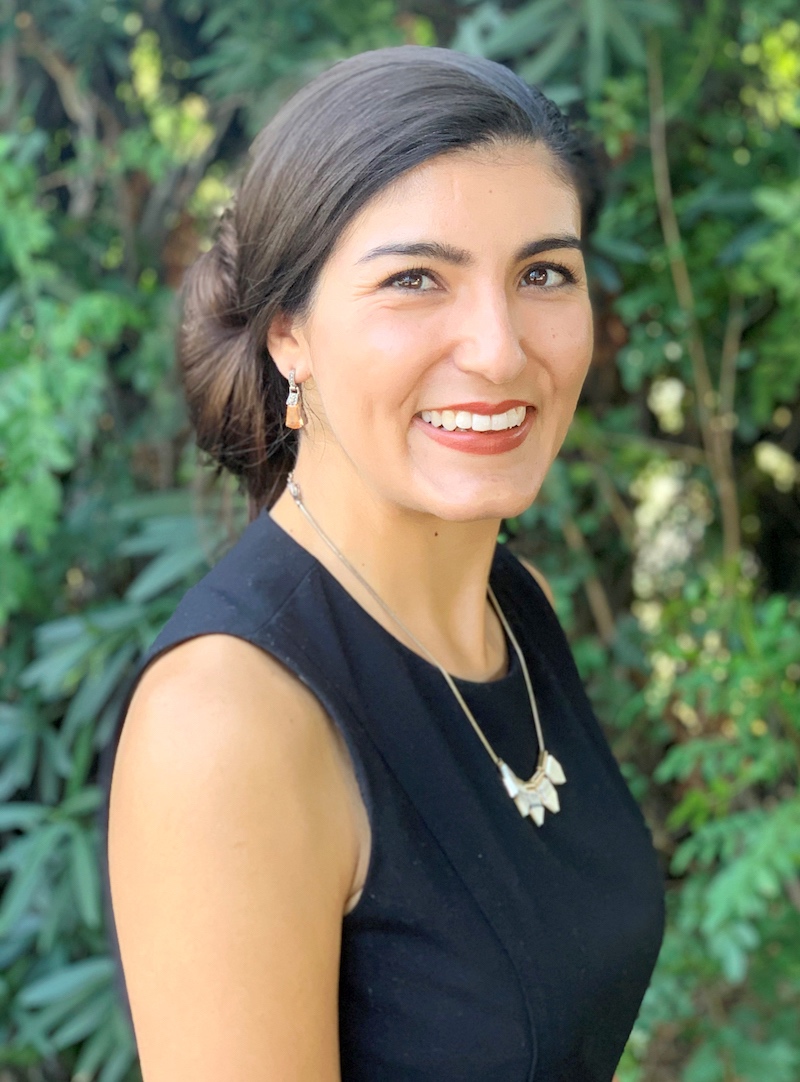Research Buzz
Breathe Easy
Providing compassionate cessation services to cancer patients who smoke.
By Samantha Valasek MA ’15, OTD ’16
Assistant Clinical Professor
My grandmother Mary Lou was a VA nurse in the psychiatric ward, where she cared for young veterans who had just come home from the Vietnam War. A mixture of love and resolve was present in all she did, whether with her patients living with addiction or in her own family relationships. She exemplified how compassion, integrity and wisdom matter across all domains of life, and her experiences with cancer inspired my own interest in health care.
Today, as a clinical faculty member at USC Chan, I am following in her footsteps by using Lifestyle Redesign® occupational therapy in the context of an interdisciplinary team to help cancer patients with tobacco dependence.
For those who smoke, quitting is considered the single most important action to prevent cancer and to improve treatment outcomes after a cancer diagnosis. Of course, as many who have tried will attest, quitting tobacco is notoriously challenging to accomplish alone. In fact, in 2015, the Centers for Disease Control and Prevention found that while almost 70 percent of American smokers wanted to quit, about 55 percent attempted it, and only 6 percent succeeded. The USC Norris Comprehensive Cancer Center does not want patients to have to make this difficult journey alone.
Matt Kirkpatrick, associate professor of research in the Department of Population and Public Health Sciences at the Keck School of Medicine of USC, established an interdisciplinary team, including oncology, internal medicine, addiction research and occupational therapy, with the aim of improving patients’ chance of success through better tobacco assessment and treatment.
Our team is supported by a grant from the NIH National Cancer Institute Moonshot Program’s Cancer Center Cessation Initiative, also known as C3I, which is a nationwide initiative to help cancer centers build, implement and sustain treatment programs that routinely address tobacco cessation with cancer patients. While collecting data and interviews for mixed-methods implementation studies, our team is applying evidence-based practices to blend population health approaches with intensive individual care, ensuring we can meet patients’ needs wherever they are in their cessation journeys.
It’s no surprise that a holistic approach to tobacco treatment utilizing both intensive behavioral counseling and medication is most effective for helping individuals to quit. As an occupational therapist with advanced training in tobacco treatment, my role is to provide the former while supporting the safe and routine use of the latter.
During our occupational therapy sessions, my patients are able to discover and enact unique lifestyle changes needed to initiate and maintain abstinence, particularly during the trials and tribulations of cancer treatment. Through supportive problem-solving, self-regulation skills training and recommendations for environmental or routine modifications, patients who once felt as if nicotine cravings and withdrawals ruled their day, come out of occupational therapy with a sense of mastery and freedom, as if they are finally breathing easily.
One thing that I have heard repeatedly from patients, after experiencing a lapse in abstinence, is surprise — “I thought you’d be mad!” Patients are so accustomed to the stigma and shame associated with smoking that they visibly exhale when a clinician meets them with understanding and grace, instead of criticism and blame.
By reframing the meaning of tobacco use as an occupation, we work to create space for exploring healthy alternatives that align with their health goals and to satisfy their needs and narratives currently fulfilled by smoking. My goal is to always accomplish this without counterproductively triggering those stressors and trauma that so often maintain addiction.
I am excited to continue expanding occupational therapy’s work in addiction care. Beyond tobacco dependence, I also see Lifestyle Redesign clients for binge eating, alcohol use and behavioral addictions. My hope is to continue growing this specialty and integrating it into primary care and in cancer teams with my colleagues at Norris and Keck Hospital of USC. Those who are walking the path of recovery need not go it alone, especially when they can have an entire team beside them every step of the way.
⋯







